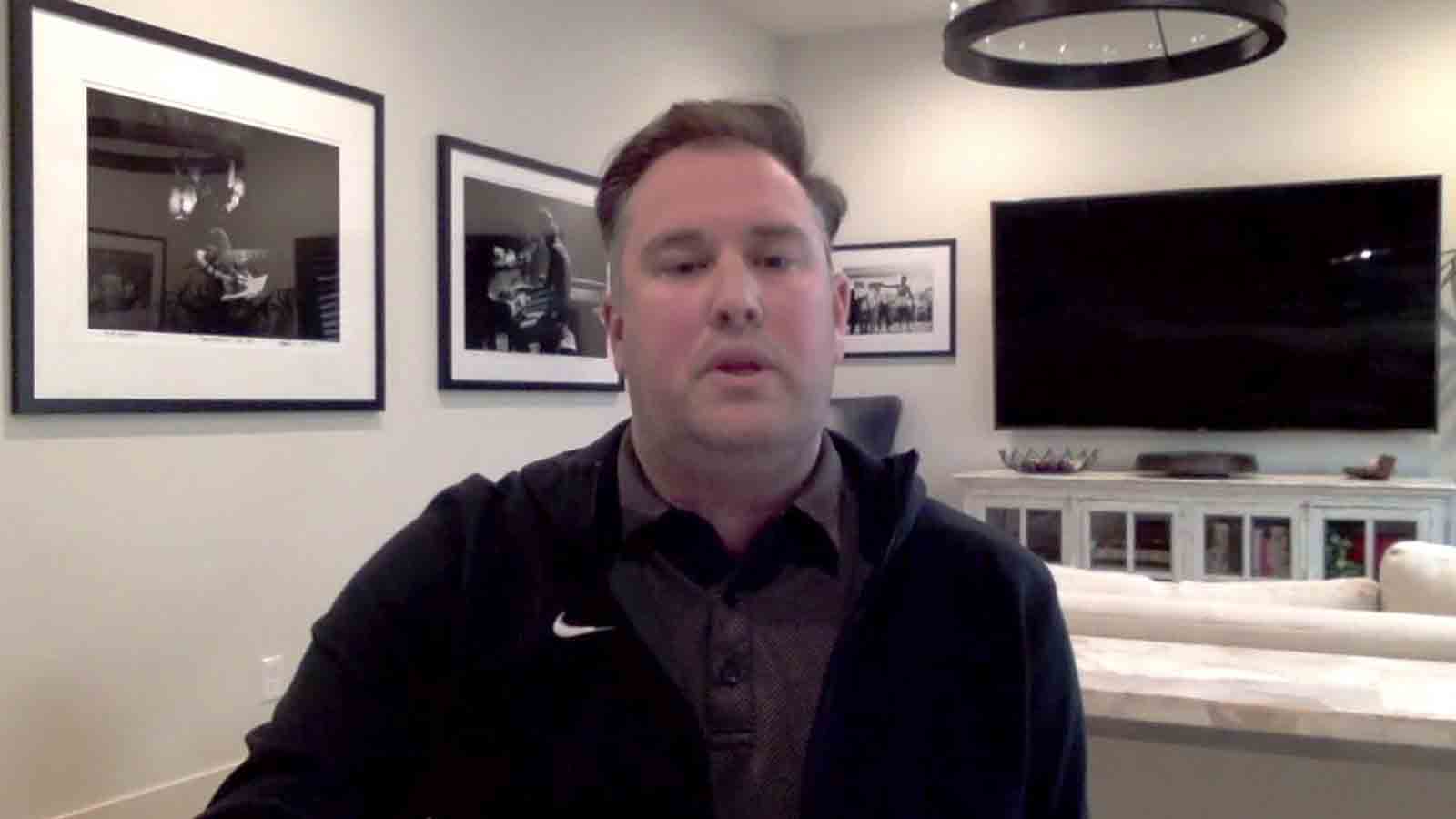The Athletics' move to southern Nevada is expected to take a major step forward Thursday when the 30-year lease, non-relocation and development documents are likely to be approved by the Las Vegas Stadium Authority following a rise in the estimated cost of the ballpark by $250 million to $1.75 billion.
Those agreements could be the last major hurdles before construction can begin in the spring on a Las Vegas Strip stadium projected to open for the start of the 2028 season, a ballpark in which underseat cooling is planned.
Steve Hill, president and CEO of the Las Vegas Convention and Visitors Authority, has maintained for several months those items would be approved and didn't change his view this week. A backup meeting is scheduled for Dec. 12 in case the approval isn't finalized Thursday, but Hill said he anticipated canceling that second session.
“Obviously, our board still has an opportunity to review everything and ask questions,” Hill said. "But we have been through drafts of all the outstanding documents at this point a number of times over a long period of time, and so I think the questions have been answered. I think we’re ready to approve."
Get top local stories in San Diego delivered to you every morning. Sign up for NBC San Diego's News Headlines newsletter.
Nevada and Clark County are providing $380 million in public funds for a 30,000-seat domed stadium estimated to have a capacity of 33,000. Public financing doesn't begin until the A's have spent at least $100 million, and club executive Sandy Dean said this week the organization aleady has invested $40 million.
Dean also said club owner John Fisher increased the previous pledge of his family’s money by $100 million to $1.1 billion. Dean said U.S. Bank and Goldman Sachs will offer a $300 million loan. Fisher still hopes to attract investors in Las Vegas and elsewhere who would purchase equity in the team, according to Dean.
Ballpark construction cost increased because of inflation and design changes that added 70,000 square feet.
MLB
“Adding amenities for fans and players, investing in the acoustics of the ballpark for concerts and insuring maximum fan comfort with under-seat cooling has been a rewarding part of the design process,” Dean wrote in an email.
Four letters will be presented to show that the financing is in place to build the ballpark even if Fisher doesn't attract investors:
— A loan commitment from both banks.
— Fisher and his family have the ability to meet their financial pledge.
— U.S. Bank's review of the owner’s finances backs up that Fisher has the money in place.
— The commitments to Athletics StadCo LLC, an entity created to handle the private capital investment.
There are other issues that must be resolved before the stadium is finalized, including a development agreement with the county.
But if the Stadium Authority signs off on the documents, ground-breaking likely will be the next notable event.
The A’s will play at least the next three seasons at a minor league ballpark in West Sacramento, California. They recently played their last of 57 seasons in Oakland, California.
“It’s gratifying, but it’s important for Las Vegas,” Hill said. “Making sure that you get these types of deals done are important. The sports world, at least, is watching. There's been a lot of speculation and a lot of poking at this, but bringing Major League Baseball to Las Vegas and bringing the A's to Las Vegas and bringing a great venue like this to Las Vegas is just a great thing. Cities don’t get an opportunity to do this very often."



